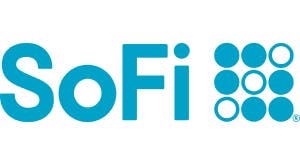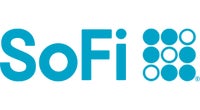STUDENT LOAN
Ascent: Best For Bootcamps And Vocational Programs

Bankrate Score = 4.7/5
Bankrate scores are objectively determined by our editorial team. Our scoring formula weighs several factors consumers should consider when choosing financial products and services.
An annual percentage rate (APR) represents the interest and fees you'll pay on top of your initial amount every month. A fixed rate will not change during your repayment period.
The range of loan amounts that a lender will service. The maximum value is the largest amount a lender will give although this amount may not be available to borrowers who don’t have good or excellent credit. Amount ranges may vary for non-loan products. Term refers to the amount of time you have to repay the loan.
Check rate with Credible
This lender is registered in states where it does business and was vetted by the Bankrate Editorial team.
Students seeking to cover up to 100% of trade school and career training expenses may benefit from Ascent's bootcamp loan options. Borrowers have five repayment options to choose from, plus access to generous forbearance programs and financial education tools.
- Attend an eligible school or institution
- Enrolled in a degree program for at least half-time
- Valid Social Security number
- U.S. citizen, permanent resident or have Deferred Action for Childhood Arrival (DACA) status
- Non-cosigned loans: Have at least two years of credit history
- Non-cosigned loans: Meet Ascent's credit score minimum
- Returned check fee of $25
- Late fee of the lesser of 5% of the missed payment or $25
Pros
- Financial hardship forbearance of up to 24 months
- Financial wellness tools and resources
- Outcome-based no-cosigner loans
Cons
- Higher maximum rate than most lenders
- Only students attending specific schools are eligible
- No refinance loans
Ascent's undergraduate and graduate student loans are funded by Bank of Lake Mills or DR Bank, each Member FDIC. Loan products may not be available in certain jurisdictions. Certain restrictions, limitations, terms and conditions may apply for Ascent's Terms and Conditions please visit AscentFunding.com/Ts&Cs.
Annual Percentage Rates (APRs) displayed are effective as of 02/01/2026 and reflect an Automatic Payment Discount (ACH). The ACH discount consists of 0.25% on credit-based college student loans submitted prior to 6/1/2025, a 0.5% discount for on credit-based college student loans submitted on or after 6/1/2025 and a 1.00% discount on outcomes-based loans when you enroll in automatic payments. Loans subject to individual approval, restrictions, and conditions apply. Loan features and information advertised are intended for college student loans and are subject to change at any time.
The final amount approved depends on the borrower's credit history, verifiable cost of attendance as certified by an eligible school and is subject to credit approval and verification of application information. Lowest interest rates require full principal and interest (Immediate) payments, the shortest loan term, a cosigner, and are only available for our most creditworthy applicants and cosigners with the highest average credit scores. Actual APR offered may be higher or lower than the examples above, based on the amount of time you spend in school and any grace period you have before repayment begins. Variable rates may increase after consummation. 1% Cash Back Graduation Reward subject to terms and conditions. For details on Ascent borrower benefits, visit AscentFunding.com/BorrowerBenefits. Ascent applicants and borrowers that agree to the AscentUP Terms of Service and Privacy Policy, as well as students associated with an Ascent parent loan application, have access to the AscentUP platform.
The following examples for a $10,000 loan show a 48-month in-school period plus 9 months of grace prior to a full repayment term for 60-months (variable rate), with examples of (i) Interest Only payments, (ii) $25 Minimum payments, (iii) Deferred repayment, and (iv) Immediate Repayment options.
* Interest Only Repayment: 5.99% APR, with 57 payments of $49.92 while in-school/grace, 60 payments of $193.3 during the repayment term, and a total cost of $14,444.39.
* $25 Minimum Payment: 6.60% APR, with 57 payments of $25.00 while in-school/grace, 60 payments of $235.46 during the repayment term, and a total cost of $15,553.03.
* Deferred Repayment: 6.79% APR, with no payment while in-school/grace, 60 payments of $271.69 during the repayment term, and a total cost of $16,267.27.
* Immediate Repayment: 3.99% APR, with 60 payments of $184.13, and a total cost of $11,047.62.
The following examples for a $10,000 loan show a 48-month in-school period plus 9 months of grace prior to a full repayment term for 180-months (highest variable rate), with examples of (i) Interest Only payments, (ii) $25 Minimum payments, (iii) Deferred repayment, and (iv) Immediate Repayment options.
* Interest Only Repayment: 15.40% APR, with 57 payments of $128.25 while in-school/grace, 180 payments of $142.67 during the repayment term, and a total cost of $32,996.72.
* $25 Minimum Payment: 13.95% APR, with 57 payments of $25.00 while in-school/grace, 180 payments of $230.08 during the repayment term, and a total cost of $42,842.24.
* Deferred Repayment: 14.20% APR, with no payment while in-school/grace, 180 payments of $263.35 during the repayment term, and a total cost of $46,603.55.
* Immediate Repayment: 15.15% APR, with 180 payments of $140.97, and a total cost of $25,376.92.




























